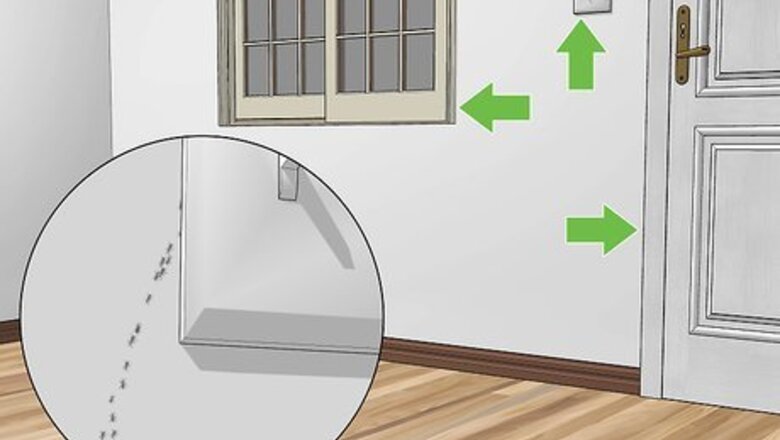
views
Killing The Ants
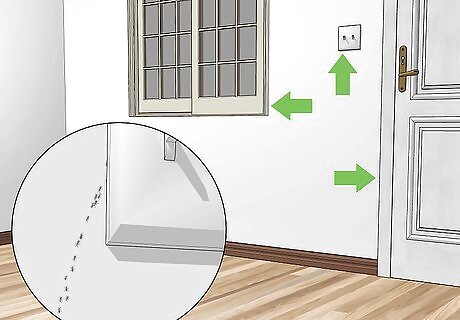
Find the ants’ entry areas. Ants come into your home for two main reasons: to find food to bring back to the colony, and to seek shelter from cold weather conditions. Ants could enter your home from many different areas, so be sure to check around window cracks, door entryways, lighting fixtures, and other possible entrances. If you see a trail of ants in your home, follow them to see where they are entering from. If you find specific entry points where ants are coming into your home, focus your repellant and deterrent efforts on these areas. That way, you reduce the chances of the ants reentering you home through these avenues.
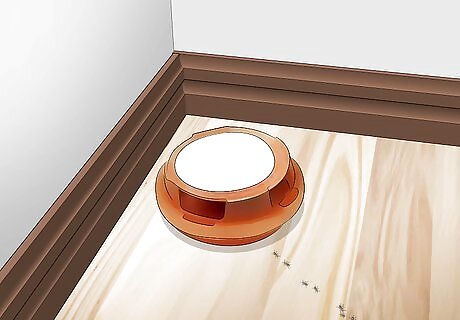
Set up a commercial bait trap. Commercial bait traps eliminate ants much the same way as Borax traps, but they tend to work a bit faster (although they are still slow-acting), and can be more targeted to specific food preferences of your invading ant. For example, there are ant baits that are sugar based, grease based, and protein based depending on what kind of ant you are dealing with. When in doubt for what kind of ant bait to use, consider getting one of each. If you find that the ants are not taking the bait, you may have to change the type of bait you are using, or relocate the bait to a more active area. When using bait, all other food competition must be removed from the area. This food competition could inhibit the effectiveness of the bait. When the ants start feeding on the bait, leave them alone to feast and bring it back to their colony. After some time, you should see a reduced number of ants.
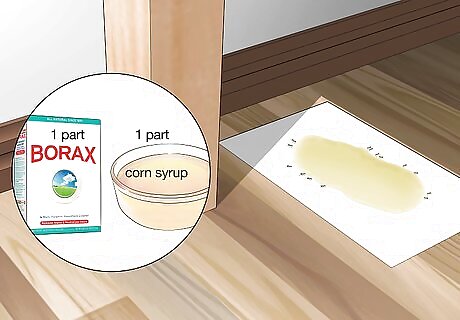
Poison the ants with Borax. Borax is a cleaning chemical that is poisonous to ants, but non-toxic to humans. To try and kill the ants at their source, make a Borax bait that the ants will flock to, and bring back to their nest. Mix one part corn syrup (or any sweet, sticky substance) with one part Borax, and spread the mixture on an index card. Place the index card in an area where you have witnessed a lot of ant activity. The ants will bring this sweet, poisonous mixture back to their colony, and it will slowly eliminate the ants. Consider setting this bait at night, because ants tend to hunt for food during the night hours. You could also make a poison mixture with Borax and powdered sugar. Mix together 1 part Borax with 3 parts of powdered sugar. Fill small containers with this mixture (bottle caps, spoons, etc.), and place these containers around areas where ants may be entering your house. If you have pets or children who could get into this powdered Borax mix, consider mixing 1 cup of warm with ½ cup of sugar, and 3 tablespoons of Borax. Soak cotton balls in this mixture, and set the cotton balls out in shallow dishes near known ant entry points.
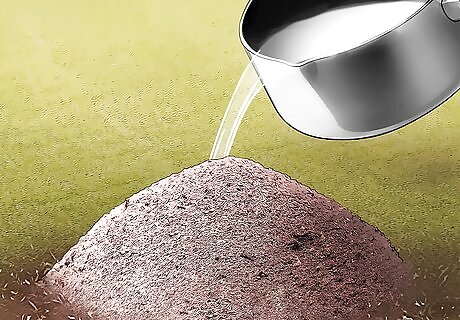
Pour boiling water over the anthill. If you are able to follow an ant trail back to a nest or anthill, consider pouring salty boiling water down the hill opening. You may have to use many containers of water, but this will be a surefire way to eliminate a large amount of intruding ants.
Repelling The Ants
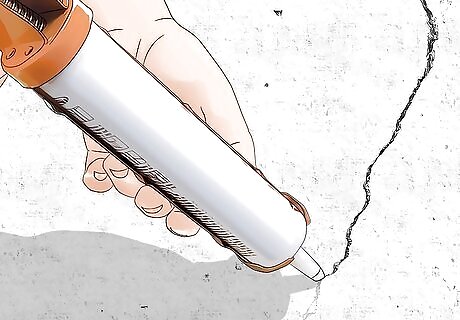
Seal any entryways. When you have found areas through which ants are entering your home, barricade and seal these entryways. Consider filling in cracks and crevices with a silicone caulk treatment. You could even put some sort of deterrent (Borax, cinnamon, coffee grounds, bay leaves) in the crack, and then continue to seal the opening with caulk. Latex and siliconized acrylic caulks are not effective when trying to seal ant entryways, because ants can break down these caulking treatments.
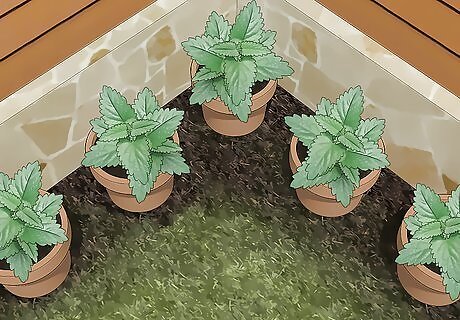
Create a barrier. Consider creating a barrier around your house or garden to prevent ants from entering. Scatter coffee grounds around the foundation of your house, along the perimeter of your garden, and along any sites where you have noticed ant trails or a lot of ant activity. Consider keeping mint or chili pepper plants around your house or planting them in your garden. These plants are known to keep intrusive ants at bay. You could also lay down a ring of food grade diatomaceous earth around the perimeter of your house or garden. Sprinkle this powder near from your home’s foundation or garden, and try to sprinkle a ring around known anthills and nests. Diatomaceous earth breaks down the ants’ exoskeleton and causes them to dehydrate. DE is non-toxic to humans, but try your best not to directly breathe in powder particles. Commercial insecticides can be used on the outside of your home, but bear in mind that insecticides are usually dangerous to humans, pets, and sometimes the environment.
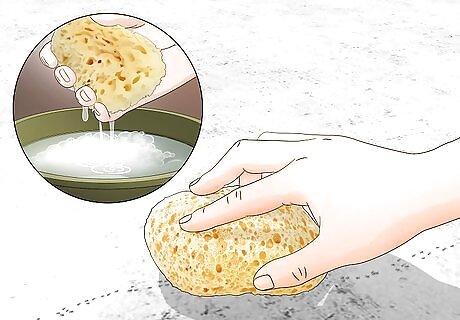
Eliminate ant trails. Since ants leave scented trails for other ants to follow, when you do find trails in your house, erase the scent with some soapy water. Simply create a solution of dish soap and water, and use a sponge to wipe away the trail as well as some of the surrounding area. That way, the ants will no longer have a scented trail to follow each other into your home. You could also use vinegar to remove scented trails. Simply spray white vinegar over areas known for a lot of ant activity, and wipe down surfaces where you have seen ants before.
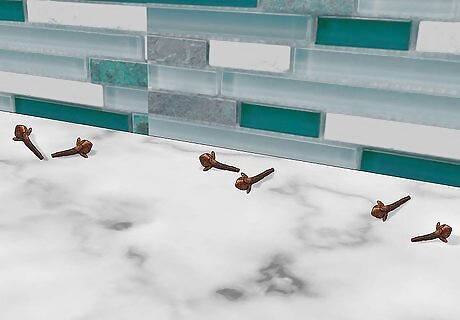
Use herbs and spices to repel ants. Cloves are an extremely effect ant repellant, and can be placed in various areas around your house to help combat pesky ants. Leave whole cloves anywhere you have seen ants crawling around (countertops, baseboards, etc.). Along with cloves, there are a few other herbs and spices that can be left around your home or planted in your garden to repel ants: Cayenne pepper Bay leaves Peppermint Cinnamon Garlic
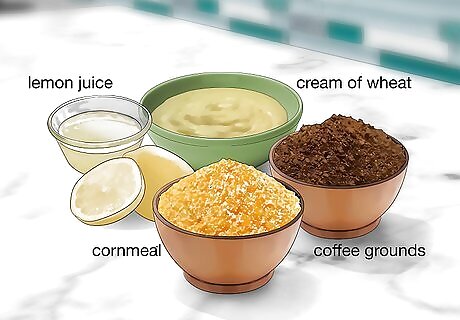
Repel the ants with other natural ingredients. Along with spices and herbs, some natural foods and other ingredients are notorious for keeping ants away. Try sprinkling these various ingredients around entryways, other spaces where you have encountered ants, or your garden area. Some common natural repellants include: Coffee grounds Cornmeal Lemon juice Cream of wheat
Keeping The Ants Away
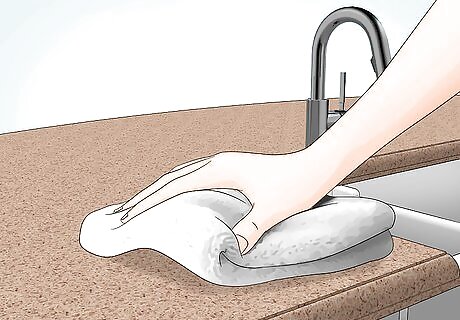
Keep your sink clean. Since ants love to feast on small food particles, don’t let dishes and other dirty utensils sit in your sink for an extended period of time. After washing dishes, wipe down the sink with a paper towel to be sure that you have removed any sweet residues from the sink surface. Consider pouring a small amount of bleach or vinegar down the sink drain to help clear away any remaining food particles that could attract ants.
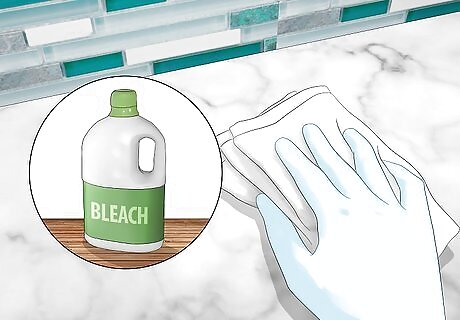
Wipe down surfaces with bleach. Bleach, much like vinegar, erases ant’s pheromone trails and can help reduce the number of ants you find crawling around. Wipe down surfaces such as countertops, refrigerator tops, cabinets, and other areas to help keep ants at bay.
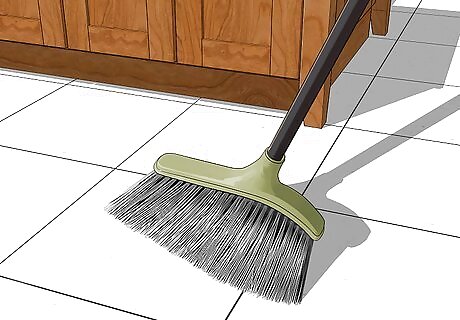
Clean your kitchen floor. Kitchen floors are perfect areas for ants to find small particles of food to take back to their colony. Be sure to sweep and mop your floor regularly (if not every night) with warm water and bleach to keep ants from crawling around underneath your feet. It doesn’t take much food bits or spill residues to attract ants and bring their friends along with them.
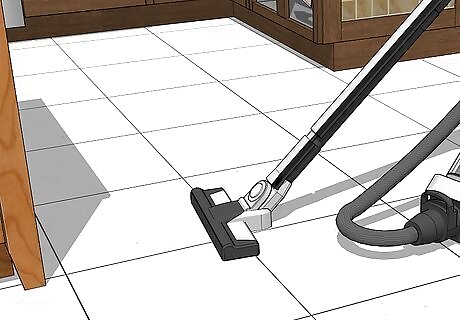
Vacuum areas where food is consumed. Along with sweeping and mopping, vacuum any areas where food is eaten. This could mean living rooms, dining rooms, or basements. You want to pick up any small particles of food that could entice ants to come into your house and feast.
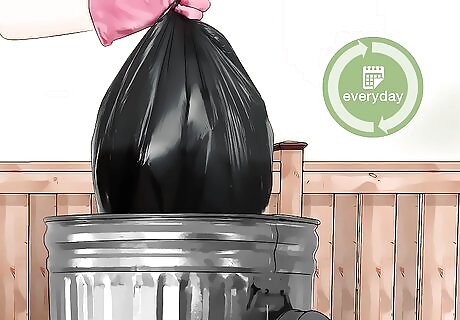
Remove your trash regularly. Any sitting food or dripping juices in your garbage will immediately attract ants into your house. Be sure to take your garbage out everyday, and use strong, durable bags that are less likely to puncture and spill waste.
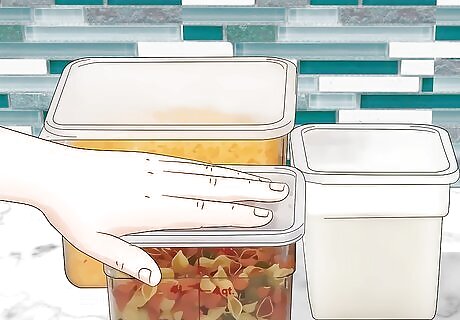
Store food in sealed containers. Ants will search your house for food wherever they can find it, so it’s really important to keep food products stored and sealed tightly. Consider keeping sticky foods such as honey, molasses, and syrups in the refrigerator. Consider keeping baking goods (sugar, flour, etc.) and cereals in airtight containers or bags.
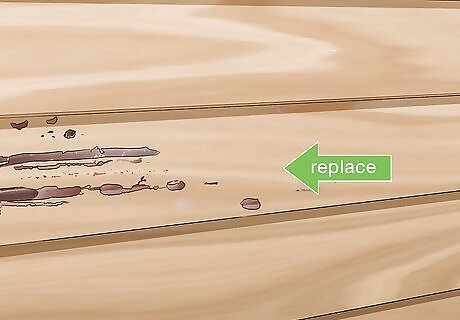
Replace decaying wood. Check around your house for any foundational wood pieces, shingles, or frames that might be starting to decay. Decaying wood is where a lot of ants like to nest and enter through, into homes. If you find any areas of decay, consider replacing those materials to better your chances of keeping ants out of your home.



















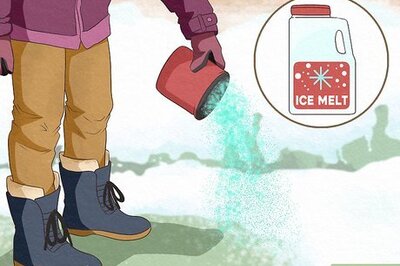
Comments
0 comment